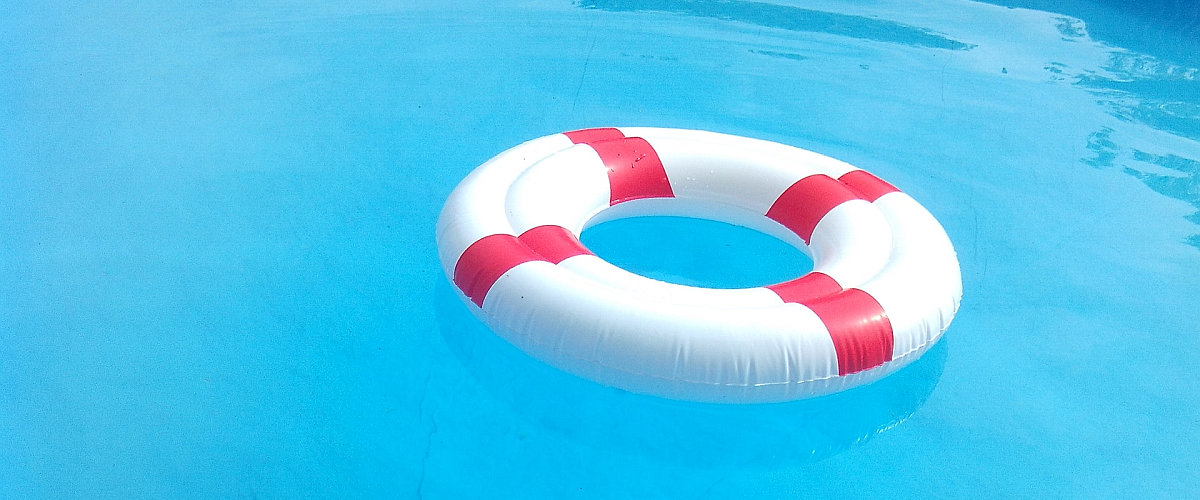Summer’s here, and you know what that means—backyard barbecues, juicy popsicles, fireworks, and much more to enjoy. Who doesn’t love this season?
It also means more time spent outdoors near the water, grilling with friends or walking a new trail. While these are all fun activities, they are also prime settings for summer mishaps. But the good news is that most mishaps are preventable with a few extra precautions.

Our safety experts (from left): Patrick Davey, Frank Chapa, and Greg LaRosa
To brush up on our safety know-how, we connected with a few Aramark safety experts: Patrick Davey and Greg LaRosa from our Environmental, Health and Safety team and Frank Chapa with our Facilities group. They have more than 70 years’ combined experience in safety and health, and they are responsible for many of the programs, operations, and trainings that keep our thousands of employees, clients, and guests safe every day.
Check out their tips to keep the good times rolling all summer long.
7 Ways to Keep Your Family Safe This Summer
Many summer activities come with well-known risks, from pools to playgrounds to campsites. And don’t forget the extreme sun and heat! Follow these tips to keep your entire family safe through Labor Day and beyond.
1. Start with a plan.
Summer is for exploring! Your travels may take you to new places, some of them off the beaten path. And that unfamiliar territory calls for an action plan. “Whether you’re hiking in the woods or exploring a tourist attraction, have a plan with times, directions, and phone numbers for everyone in your party,” Patrick suggests. He also recommends designating a place to meet up if anyone gets separated or lost.
You’ll also want to carry the essentials with you, say in a backpack. Create a go-to packing list: water, snacks, sunscreen, first aid kit, phone chargers, extra cash, and so on. You can turn to this list whenever you venture out.
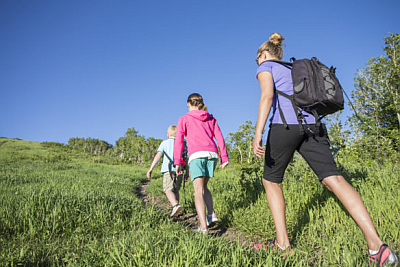 2. Get the right gear.
2. Get the right gear.
Staying active keeps your body and mind strong, all year round. But you need the right equipment to stay safe. “That means wearing properly fitting helmets and kneepads for activities like biking and skateboarding,” says Frank. “And if you’ll be around any kind of open water, such as a boat ride, make sure everyone has a life vest.”
Take it one step further with your clothing. Day or night, plan to wear bright, reflective gear when walking, running, or biking on the road. This way, drivers can more easily spot you.
3. Slather on the sunscreen.
Nothing ruins summer fun like a painful sunburn—and the skin damage can be long-lasting, increasing your risk for skin cancer. Take a moment to put on sunscreen any time you’ll be outdoors, even on cloudy days. Greg underscores that if you’re going to be in the sun for more than five to 10 minutes, choose a broad-spectrum sunscreen that blocks both UVA and UVB rays and has an SPF of 15 or higher. Apply it before going outdoors, and reapply every two hours.”
“Sunscreen doesn’t last the whole day, especially if you’ve been swimming or sweating heavily. There are no waterproof sunscreens, only water resistant ones,” Greg points out. He adds that wide-brimmed hats and protective clothing are also a good way to protect your skin from the rays.
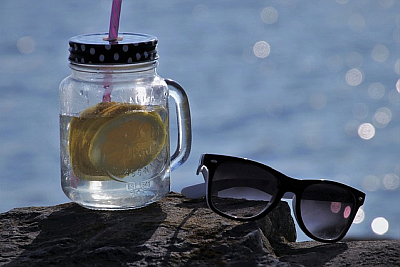 4. Stay hydrated.
4. Stay hydrated.
When heat and humidity are in full force, you can quickly lose bodily fluids through sweat. (Fun fact: We are about 60% water!) This means you should start hydrating 1-2 hours before your outdoor activity so keep water handy at all times. If you’re doing moderate to heavy activities for longer than one hour, sports drinks may be necessary to replenish electrolytes. But, no matter your drink of choice: “Don’t wait until you’re thirsty. By that point, you’re already dehydrated,” Frank advises.
Take it easy and don’t overdo strenuous activities, especially in the peak midday hours (10 a.m. to 4 p.m.). Stay in the shade whenever possible. Just in case, know the symptoms of heat exhaustion like flushed skin, rapid breathing, headaches, and dizziness. If you notice these warning signs in yourself or someone else, move to a cooler place and seek medical help right away.
5. Supervise, supervise.
Young children need constant supervision when playing outside, especially when they are near water. Those watchful eyes can belong to any responsible adult such as a babysitter, a parent or other family member, or a neighbor.
And that means constant. “Every moment counts. Accidents can happen in an instant,” Patrick stresses. “Better yet, join in the fun and get some exercise yourself!”
To be sure, adult supervision looks different as children grow up and become more self-sufficient. “This is very age-dependent. For older kids, supervision could mean checking in every hour or requiring that they travel in groups of friends,” Frank adds.
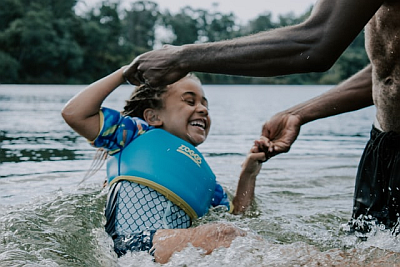 6. Practice water safety.
6. Practice water safety.
We can’t stress this point enough: Pools and beaches are tons of fun, but all that splishing and splashing comes with inherent safety risks. The younger the child, the greater the risk. It is sad that drownings are the second leading cause of preventable deaths in children under 15 years old. Practicing water safety can help to make this troubling statistic a thing of the past.
Whenever possible, swim where there is a lifeguard on duty. Always swim with a buddy, never alone. Walk, don’t run near the edge of a pool or dock. Remind kids to jump in feet first, not head first, especially in the shallow end. Avoid rough horseplay—playing Marco Polo is one thing, but dunking someone’s head underwater is quite another. Finally, get out of the water if you become tired.
7. Set boundaries.
Some activities may feel too risky, depending on your kids’ ages and other factors. As with many aspects of parenthood, this can be a judgment call. Know what you’re comfortable with and set clear boundaries. For example, you may have a rule that younger children can’t be on the trampoline unless an adult is present.
Curfews count, too, especially when the sun sets later in the evening. You might request that your 12-year-old be home by your family’s dinnertime.
Getting pushback? Share that it’s all in the name of safety—and few things are more important than that. “Explain to children that you’re trying to keep them safe, not squash all their fun,” Frank says. “This may take some time to sink in, but it’s a good lesson.”
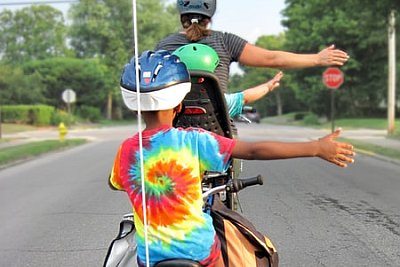 Safe and Sound
Safe and Sound
Safety measures are a necessary part of summer. The key, our experts suggest, is to plan ahead and involve the entire family in the process. This might be just the right time for your teenager to get trained in babysitting skills, first aid, CPR, or lifeguarding—so they can be an extra set of eyes.
“You’ll feel better knowing that you’ve done everything you can to ensure a safe experience for your family,” says Greg.
Now, let the summer fun begin!
Note: Since everyone’s health history and nutritional needs are so different, please make sure that you talk with your doctor and a registered dietitian to get advice about the diet and exercise plan that‘s right for you.

